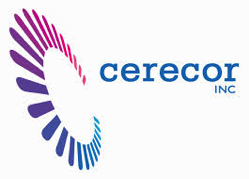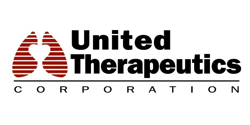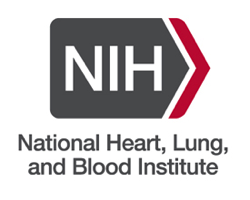
Epigenomics AG (FSE: ECX; OTCQX: EPGNY) (“Epigenomics” or “Company”), Cathay Fortune International Company Limited (“CFIC”) and Blitz F16-83 GmbH (in the future Summit Hero Holding GmbH, “Bidder”), a subsidiary of CFIC, have tonight entered into a business combination agreement (“BCA”) regarding the takeover of Epigenomics by the Bidder. Other than by CFIC, the Bidder will also be indirectly owned by the currently largest shareholder of Epigenomics, Biochain, the strategic partner of Epigenomics and a subsidiary of Team Curis Group.

The lupus treatment landscape could soon welcome an entrant if a first-in-class anti-interferon monoclonal antibody (mAb) continues to hit clinical-trial targets. AstraZeneca and its biologics R&D branch, MedImmune, are developing anifrolumab, an investigational monoclonal antibody that blocks type 1 interferons to treat moderate to severe systemic lupus erythematosus (SLE).

BeneVir Biopharm, Inc., a biotechnology company developing oncolytic immunotherapies for the treatment of cancer, announced today that the U.S. Patent and Trademark Office has issued US Patent No. 9,623,059, entitled “Oncolytic Herpes Simplex Virus and Therapeutic Uses Thereof”, covering the composition of matter for Stealth-1H, BeneVir’s lead oncolytic immunotherapy, as well as other platform assets. BeneVir is a portfolio company within Pansend Life Sciences, a subsidiary of HC2 Holdings, Inc. (NYSE MKT: HCHC)

Local business leaders, elected officials, scientists and scholars attended the 2017 BioHealth Capital Region Forum at the campus of MedImmune in Gaithersburg on April 19 and 20th. The forum focuses on the biotechnology cluster in Maryland, Virginia, and Washington, D.C., which is working collaboratively to become a top three biotech hub in the United States by 2023.

Out of five startup companies selected to present in front of a panel of industry leaders at the 2017 BioHealth Capital Region Forum, LifeSprout was chosen to have the most commercial potential at the 2nd Annual Crab Trap Competition.This year the event was moderated by BHI President & CEO, Rich Bendis. Judges included industry leaders from Verily Life Systems, Roche, Inova Strategic Investments, New Enterprise Associates, AstraZeneca, and Blu Venture Investors. LifeSprout impressed judges with a presentation by Kevin Colbert, Director of Operations, on their next-generation of synthetic soft tissue substitutes for aesthetic and reconstructive medicine. Their first-in-class bioresorbable, nanofiber-hydrogel composites are formulated to match the stiffness of native soft tissues without compromising their porosity. LifeSprout is a Johns Hopkins University startup.
“This was an exceptionally strong group of participants, and LifeSprout along with the other finalists should be proud of their accomplishments.” said Richard Bendis, BHI President & CEO. “I would like to thank all the participants in addition to our judges and sponsors who helped make this competition possible.”
Founded by BioHealth Innovation, Inc. (BHI) and MedImmune in 2016, the Crab Trap Competition focuses on companies in therapeutics, diagnostics, medical devices, healthcare services, e-health, mobile health, electronic medical records, health informatics, and biohealth cyber security. The grand prize this year is $10,000, incubation space in either Prince William County, VA or Montgomery Country, MD, and business mentoring.
Caption: From left to right: Ethan Byler (BHI), Mark Fitzgerald (Wilson Sonsini Goodrich & Rosati), Kevin Colbert (LifeSprout/Johns Hopkins), Rich Bendis (Moderator/BHI)

Sisu Global Health got more recognition for its device that recycles blood for use during surgery, winning the First Mile Innovation Challenge.
The competition, which was run by the Consortium of Affordable Medical Technologies (CAMTech), GE Sustainable Healthcare Solutions and MGH Global Health, sought applications from around the world that address health hardships in low and middle income countries. About 80 companies from 16 countries applied, according to an announcement.

The Maryland Life Sciences Advisory Board (LSAB) was created by the legislature in 2007 to assist in maintaining Maryland’s preeminence in the life sciences industry. Comprised of 18 members, the Board includes the Secretary of the Maryland Department of Commerce, a representative designated by the Maryland Technology Development Corporation (TEDCO), and 16 members appointed by the Governor.

VLP Therapeutics, LLC. (“VLP”), a biotechnology company focusing on the research and development of therapeutic and preventative vaccines and antibody agents, today announced that it successfully received a notice of allowance from the U.S. Patent and Trademark Office for the composition of matter patent to cover immune checkpoint PD-1/PD-L1/PD-L2 inserted alphavirus VLP. The patent will be issued on May 2nd. The patent protects key composition of matter of VLP’s proprietary i-α virus like particles platform technology, and the pharmaceutical composition and vaccine for use in the treatment of cancer. Utilizing the platform technology covered by this patent and other patent estates, VLP is currently focused on developing preventative and therapeutic cancer vaccines as well as next generation of targeted antibody agents.

For Charles Li, locating his office at the Johns Hopkins University Montgomery County Campus is like coming home.
Li received his MBA from the Carey Business School in 2014 and took the majority of his classes at the Rockville campus. Three years later, when presented with the opportunity to open a business office in Maryland, he chose JHU MCC. He likes the campus library and the proximity to his house.

Cerecor Inc. (NASDAQ: CERC), a clinical-stage biopharmaceutical company developing treatments to make a difference in the lives of patients with neurological and psychiatric disorders, today announced topline clinical results from a small, proof-of-concept clinical trial sponsored by the National Institute of Mental Health ("NIMH") of the National Institutes of Health. This was a Phase 2 trial of CERC-501, a potent and selective oral kappa opioid receptor ("KOR") antagonist, in treatment resistant depression ("TRD") conducted under the leadership of Dr. Maurizio Fava of Massachusetts General Hospital ("MGH").

Silver Spring-based United Therapeutics Corp. has been clear about its ambitions to build an unlimited supply of certain transplantable organs.
Now, founder Martine Rothblatt said the company's new multiyear collaboration with a 3-D bioprinting company, announced Wednesday, takes it a big step toward that goal.

RegeneRx Biopharmaceuticals, Inc. (OTCQB: RGRX) ("the Company" or "RegeneRx"), a clinical-stage drug development company focused on tissue protection, repair and regeneration, today announced that its licensee for RGN-137, GtreeBNT Co., Ltd., received a positive response from the U.S. FDA for its Phase 3 clinical trial design for RGN-137 to treat epidermolysis bullosa ("EB"). RGN-137 is a dermal wound healing gel that incorporates Thymosin beta 4 ("Tβ4") as the active pharmaceutical ingredient. GtreeBNT is planning to enter into the Phase 3 trial in the U.S. during the third quarter of 2017.

PGDx launched in 2010 to bring innovative genetic analyses to cancer researchers, physicians and patients. PGDx uses cutting-edge next-generation sequencing and analysis techniques to identify mutations in patients’ tumors and facilitate the development of personalized treatment plans as well as novel basic science discoveries. In addition, PGDx has developed exciting liquid biopsy technology that uses patient-specific tumor alterations to create a simple blood test that will enable non-invasive tumor detection and monitoring. PGDx is composed of talented individuals with a variety of scientific backgrounds that are dedicated to advancing medicine through genomic technologies.

The Johns Hopkins University announced today the opening of its state-of-the-art innovation hub, FastForward 1812. The 23,000-square-foot space near Johns Hopkins’ flagship hospital and schools of medicine, public health and nursing provides Baltimore’s burgeoning innovation ecosystem and area startups sought-after office, co-working and wet lab space to accommodate a variety of startups.

AstraZeneca today marks a key milestone in its successful move to Cambridge, UK, with the ‘topping out’ of its new, state-of-the-art, strategic R&D centre and global corporate headquarters at the heart of the Cambridge Biomedical Campus (CBC). The Company, including its biologics research and development arm, MedImmune, already has 2,000 employees actively engaged in the city’s vibrant scientific, academic, clinical and business community. Occupation of the site will begin in stages in 2018.

The National Institutes of Health will get a $2 billion funding boost over the next five months, under a bipartisan spending deal reached late Sunday night in Congress. The agreement marks a sharp rejection of President Trump’s proposal to cut $1.2 billion from the medical research agency in the current fiscal year.

On Saturday, hundreds of thousands of people are expected to march in Washington, DC, to celebrate and defend science—at a time when many believe that science does, in fact, need defending. President Trump’s budget proposal cuts 31 percent from the Environmental Protection Agency, slashes the Department of Energy’s basic science research program, and zeroes out a program that supports early-stage research into technologies that can reduce our national dependence on fossil fuels. The National Institutes of Health (NIH), which spends $32 billion a year on biomedical research — most of which is undertaken in labs at universities and medical schools across the nation — would see a 20 percent cut, bringing the agency’s budget to its lowest level in 15 years. Beyond science, the president’s proposed budget also eliminates the National Endowment for the Arts and the National Endowment for the Humanities.

The region has seen serious spikes in venture capital funding in the last decade — and more of our local firms are benefiting.

Apply for up to $3M to support continued development of your Phase II SBIR or STTR-funded heart, lung, blood, or sleep technology requiring approval or clearance by a Federal regulatory agency. The National Heart, Lung, and Blood Institute (NHLBI) SBIR Phase IIB Bridge and Small Market Awards programs aim to de-risk your technology and encourage partnerships between small businesses and investors and strategic partners.

NHLBI small business awardees are eligible to apply for a competing revision to your current award. The Regenerative Medicine Innovation Project (RMIP), will support revision projects that propose solutions to widely recognized issues in the development of safe and effective regenerative medicine therapies.
Awards are anticipated in FY 2017

When California voters approved US$3 billion in funding for stem-cell research in 2004, biologists flocked to the state, and citizens dreamed of cures for Parkinson’s disease and spinal-cord injuries. Now, the pot of money — one of the biggest state investments in science — is running dry before treatments have emerged, raising questions about whether Californians will pour billions more into stem-cell research.